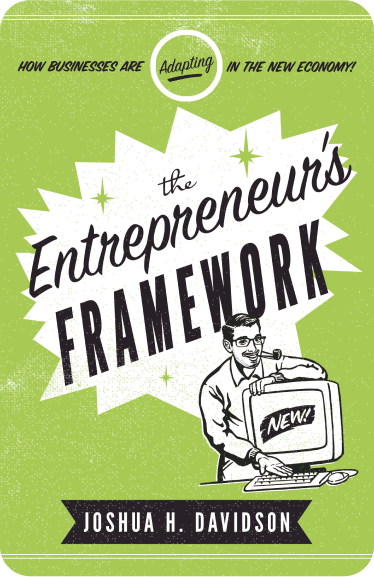Meta has recently unveiled LLaMA 3.1, its latest and most powerful open-source AI model, designed to rival leading closed-source models like OpenAI’s GPT-4 and Anthropic’s Claude 3.5.
This open-source approach fosters transparency and collaboration in the AI community, potentially accelerating advancements and making AI technology more affordable and efficient in the long run.
In April 2024, Meta hinted at a groundbreaking development for the AI industry: an open-source model designed to match the performance of top private models from companies like OpenAI.
That vision now appears to be a reality with LLaMA 3.1.
According to Meta, LLaMA 3.1 outperforms its closed-sourced competitors ChatGPT-4 and Anthropic’s Claude 3.5 Sonnet on several benchmarks.
Over on instagram, CEO Mark Zuckerberg predicts that Meta AI will be the most widely-used assistant by years-end, surpassing even ChatGPT.
Let’s dive in.

A Look At LLaMA 3.1
One of the standout features of LLaMA 3.1 is its size and capability.
For starters, Meta has made its open-source AI technology available in more countries and languages.
Additionally, there is a feature that can generate images based on a specific user’s likeness. Llama 3.1 can also integrate with a search engine API to “retrieve information from the internet based on a complex query,” according Ahmad Al-Dahle, Meta’s VP of generative AI.
The model, particularly the 405B variant, is designed to be run on developers’ infrastructure at roughly half the cost of similar closed-source models, making it an attractive option for those looking to integrate advanced AI capabilities without incurring prohibitive costs.
Despite its advantages, some experts caution that the model’s large size could lead to high computational and energy demands, emphasizing the need for innovations in model efficiency over merely scaling up size.
“I believe the Llama 3.1 release will be an inflection point in the industry where most developers begin to primarily use open source.” – Mark Zuckerberg
Rolling Out Meta’s Open-Source AI
Meta has also integrated this advanced AI model into its suite of applications, including Facebook, Instagram, WhatsApp, and Messenger.
Users can interact with Meta AI for various tasks, such as planning events, finding information, and generating creative content like images and GIFs.
The assistant is designed to provide real-time search results and is being rolled out in multiple countries, expanding its reach and usability globally.
Meta’s integration of Llama is its AI assistant, designed as a versatile chatbot similar to ChatGPT, and it is integrated into nearly every aspect of Instagram, Facebook, and WhatsApp.
This week, Llama 3.1 will become available first through WhatsApp and the Meta AI website in the US. Following this initial release, it will be accessible on Instagram and Facebook in the coming weeks. Additionally, Meta is updating the model to include support for new languages, such as French, German, Hindi, Italian, and Spanish.
This integration aims to make AI more accessible and helpful in everyday activities, enhancing user experience across Meta’s platforms.
Exploring Cost and Future Implications
Llama 3.1 is much more complex than previous Llama 3 models launched just a few months ago. The largest version has 405 billion parameters and was trained with over 16,000 of Nvidia’s H100 GPUs.
Meta hasn’t revealed the exact cost of developing Llama 3.1, but considering the expense of Nvidia chips alone, it’s likely in the hundreds of millions of dollars.
Given this substantial investment, why does Meta continue to offer Llama under a license requiring approval only from companies with hundreds of millions of users?
In a letter on Meta’s company blog, Zuckerberg contends that open-source AI models will surpass — and are already advancing faster than — proprietary models. He compares this to how Linux became the dominant open-source operating system powering most phones, servers, and gadgets today.
Zuckerberg likens Meta’s commitment to open-source AI to its previous Open Compute Project, which reportedly saved the company “billions” by collaborating with external companies like HP to enhance and standardize Meta’s data center designs during its expansion.
Looking ahead, Zuckerberg anticipates a similar trend with AI, stating, “I believe the Llama 3.1 release will be a turning point in the industry, where most developers will begin to primarily use open source.”
Training Open-Source AI

To facilitate the release of Llama 3.1, Meta is collaborating with over two dozen companies, including Microsoft, Amazon, Google, Nvidia, and Databricks, to assist developers in deploying their own versions.
Meta asserts that running Llama 3.1 in production costs about half as much as OpenAI’s GPT-4.
By releasing the model weights, Meta enables companies to train it on custom data and fine-tune it to meet their specific needs.
Unsurprisingly, Meta isn’t saying much about the data it used to train Llama 3.1. The people who work at AI companies say they don’t disclose this information because it’s a trade secret, while critics say it’s a tactic to delay the inevitable onslaught of copyright lawsuits that are coming.
What Meta will say is that it used synthetic data, or data generated by a model rather than humans, to have the 405-billion parameter version of Llama 3.1 improve the smaller 70 billion and 8 billion versions.
Ahmad Al-Dahle, Meta’s VP of generative AI, predicts that Llama 3.1 will be popular with developers as “a teacher for smaller models that are then deployed” in a “more cost effective way.”
“Today, several tech companies are developing leading closed models. But open source is quickly closing the gap. Last year, Llama 2 was only comparable to an older generation of models behind the frontier. This year, Llama 3 is competitive with the most advanced models and leading in some areas. Starting next year, we expect future Llama models to become the most advanced in the industry. But even before that, Llama is already leading on openness, modifiability, and cost efficiency.”
Is LLaMA 3.1 Free to Access?

While Llama 3.1’s most advanced 405-billion parameter model is available for free use within Meta AI, the assistant will revert to the more limited 70-billion model after exceeding an unspecified number of prompts within a week.
This indicates that running the 405-billion model at full capacity is likely too costly for Meta.
We recently shared a guide on conducting app market research utilizing AI tools like Chat-GPT and Claude.
It’ll be interesting to see how Meta’s open-source counterpart stacks up!
Final Thoughts on LLaMA-3.1
While Meta has yet to share any usage numbers for its assistant, Meta’s launch of LLaMA 3.1 marks a significant step in the open-source AI landscape.
It offers powerful tools for innovation and everyday use, while emphasizing the importance of accessible and transparent AI development.
The jurys’ still out on whether Zuckerberg’s prediction on being the top chatbot by next year will ring true.
With 100 million users, ChatGPT’s lead is quite significant. But Meta has pulled off similar feats with Threads before.
What do you think about LLaMA 3.1? Let us know in the comments below.
Since 2009, we have helped create 400+ next-generation apps for startups, Fortune 500s, growing businesses, and non-profits from around the globe. Think Partner, Not Agency.
Find us on social at #MakeItApp’n®

















